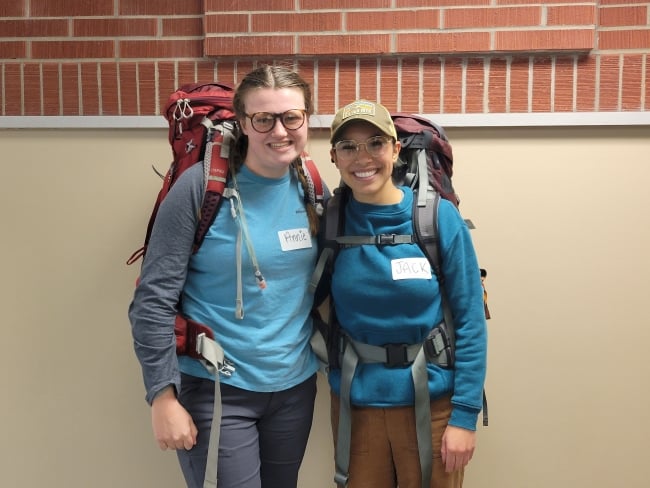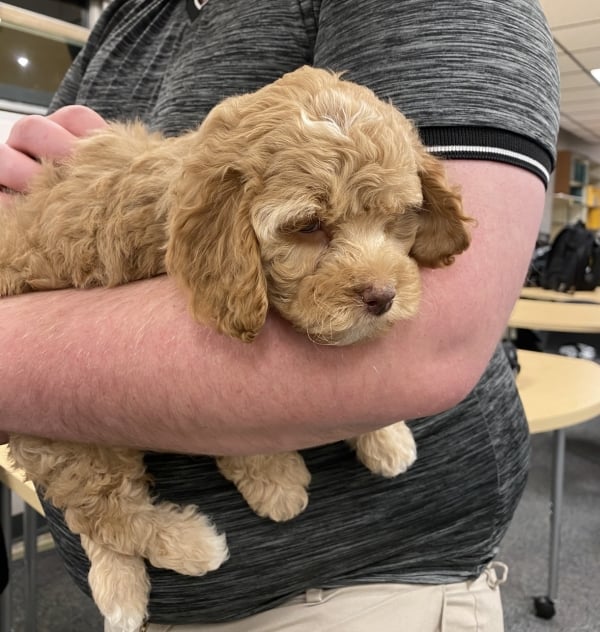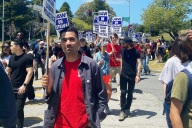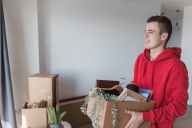You have /5 articles left.
Sign up for a free account or log in.

University of Montana students Megan Andersen and Sophia Rodriquez participated in one of MOSSAIC's social events, a Halloween party, dressed as Jack and Annie from The Magic Treehouse. Social events help connect students with autism with their peers, guided by peer leaders from UM.
University of Montana
Higher education is becoming increasingly diverse, with colleges educating a growing number of students with specific learning needs. Around one in five undergraduate students has a physical, mental or emotional disability, according to the most recent data from the National Center for Education Statistics, and approximately 50 million adults in the U.S. are neurodivergent.
Building a campus culture that is welcoming to and supportive of students with learning or other disabilities requires involvement from all campus stakeholders, including fellow students.
At the University of Montana’s flagship campus, campus leaders rely on the expertise and energy of student learners to promote campus initiatives and support this population of learners. The MOSSAIC (Mentoring, Organization and Social Support for Autism/All Inclusion on Campus) program empowers peer leaders to provide education on neurodivergence and promote belonging for students.
The background: MOSSAIC launched in 2012, led by Jennifer Schoffer Closson, associate clinical professor in the department of speech, language and hearing sciences. In 2016, Closson began leading weekly lunch meetings for neurodivergent students to get together and, slowly, the initiative grew into regular social events.
At present, MOSSAIC—focused on supporting students with autism and related disorders—has three program components:
- Peer-to-peer social support;
- Direct speech and language services to support executive functioning, social understanding and language-based skills; and
- Campus-wide education and support through educational events.
Around 12 participants regularly partake in social evenings and three students access direct services, Closson says.
To participate in the program’s social elements, students first complete an online application. Students who participate in weekly socials commit to paying $25 per semester, which covers snacks and other relevant materials for the events.
Helping one another: Students in the school of Speech, Language, Hearing and Occupational Sciences at Montana organize regular services and programs for neurodivergent classmates, including the Wednesday night social hours in a sensory-friendly environment.
Some of the events hosted include a puppy party, dinner and a movie, wire wrapping art creation, a campus-wide game of hide and seek, and guided hikes.

At the puppy party, MOSAAIC students were able to hold and pet puppies, spending time with peers in a sensory-friendly environment.
The University of Montana
MOSSAIC is also supported by 17 peers of junior or senior standing and represent a variety of majors including pre-medical professions, special education, psychology, social work, English and speech, language and hearing, Closson says. To participate as a peer, students complete an application to see if their motivation aligns with the program’s goals, Closson says.
What’s new: More recently, the program has expanded the role of peer leadership opportunities. Three of the peer supporters hold leadership roles, one in charge of social events, one running a game club and the other focused on outreach.
Students have also helped bring awareness to neurodiversity through different campaigns such as creating sensory kits, which included light covers, fidget toys, wiggle cushions and educational materials to distribute to classrooms. At present, the group has funding to create a zine, called “Our NeuroDiverse World,” in collaboration with the Communicative Sciences and Disorders division.
“We will then have an editing party with the MOSSAIC participants and then a reveal party and invite others to come see our work,” Closson says. “We will get small picture frames and put our QR code linking to the Zine in every waiting area at the U of M.”
The impact: Program participants shared in a recent survey that they enjoy the regular Wednesday events because they provide a space to be around other autistic students and the events are more relevant to them because it is student organized.
The experience also helps other students hone their skills. Brylea Beye, who serves as the student director of MOSSAIC, is responsible for organizing events and says the opportunity has helped her develop relationships with her peers and taught her professional skills, like empathy, patience and confidence.
Seeking stories from campus leaders, faculty members and staff for our Student Success focus. Share here.








